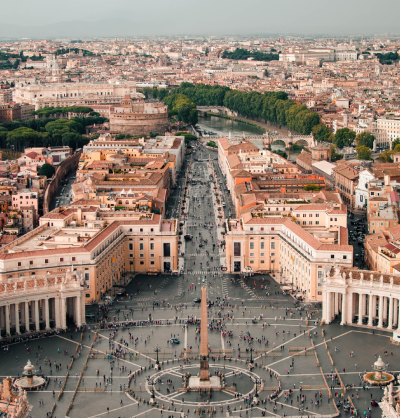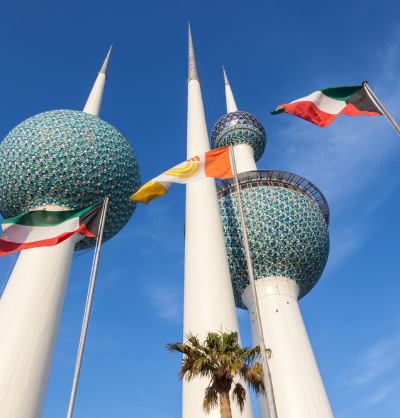United Arab Emirates’ Growing Investment Influence in Africa
By Piercamillo Falasca
Recent years have seen the United Arab Emirates significantly bolster its commitment to investment in Africa, marking a substantial shift in its economic strategy. Between 2022 and 2023, the UAE pledged a staggering $97.3 billion (USD) in investments to the African continent, underscoring its heightened interest in the region’s economic potential.
Notably, a substantial portion of this investment was directed towards Egypt, with a recent pledge of $35 billion. This move aligns with the UAE’s overarching plan, outlined in 2021, to strengthen trade ties with African and Asian countries.
This surge in investment has propelled the UAE ahead of traditional global players such as China, France, the UK, and the US in terms of investment pledges to Africa. Notably, UAE companies have shown a preference for investing in more developed African economies, including Egypt, Morocco, South Africa, and Kenya. The commitment to sustainable development is evident in the UAE’s investment strategies, particularly in the renewable energy sector. During COP 28, AMEA Power announced plans to invest $15 billion in green hydrogen production in Africa and an additional $1 billion in renewable projects across the continent. Similarly, in November 2023, the International Holding Company acquired a majority stake in Zambia’s Mopani Copper Mines for $1.1 billion, signalling a significant venture into Africa’s mining sector.
Furthermore, the UAE has played a pivotal role in climate financing initiatives in Africa. At the Africa Climate Summit in Nairobi, Masdar, the state-owned renewable energy company, spearheaded a $4.5 billion climate financing effort, with AMEA Power committing an additional $1 billion in equity investments.
Despite its substantial contributions to foreign investment, the UAE’s relationship to Nigeria has been strained due to diplomatic tensions, notably stemming from Nigeria’s visa ban on Emirati citizens in October 2022. Nonetheless, the UAE remains a key player in Nigeria’s foreign investment landscape, contributing $375.01 million in foreign capital between Q4 2022 and Q3 2023, according to data from the Nigerian Bureau of Statistics.
The UAE’s burgeoning investment presence in Africa underscores its evolving economic strategy and commitment to fostering sustainable development across the continent. As the UAE continues to expand its global footprint, its investments in Africa are poised to catalyse economic growth and drive positive change in the region.
Ramadan Kareem & Eid Mubarak
By Daniela Palumbo
During the holy month of Ramadan, the countries of the Gulf Cooperation Council (GCC) — much like the rest of the Arab and Muslim world — a balance between spirituality ad cultural and religious tradition is most acutely struck with modernity and the ever-changing geopolitical and economic globalised landscape.
As important, is Eid al-Fitr which marks the end of the holy month of Ramadan—a joyous occasion to celebrate the completion of a the holy month of reflection and contemplation. During the mornings of Eid al-Fitr, Muslims gather in mosques or open spaces to perform a special prayer, the Salat al-Eid, after which Muslims engage in various festivities, including visiting relatives, exchanging gifts, and participating in community events. Also, during this celebration, is mandatory to give Zakat al-Fitr, a form of charity, before the divine Eid prayer. This donation is typically in the form of food or money and is intended to ensure that those in need can also participate in the celebrations and enjoy a festive meal. The spirit of compassion and solidarity permeates Eid festivities, reaffirming Muslims’ commitment to cultural heritage and community cohesion.
While parts of the region are awash in violence — especially in Gaza where Palestinian civilians are trapped in a horrific cycle of destruction — it is important to pause and remember that charity is not only ensuring that all people can partake in the Eid festivities but that all people can enjoy the same levels of safety and security, prosperity and health and the freedom to chose their own political and cultural paths.
Saudi Aramco’s Adoption of AI
By Daniela Palumbo
Saudi Aramco’s introduction of the first artificial intelligence (AI) model in the industrial sector marks an important milestone in the intersection of technology and industry. As the world’s largest oil company, Aramco’s adoption of AI underscores a broader trend of digital transformation within the energy sector, with implications far beyond Saudi Arabia’s borders. The introduction to the AI promises to revolutionise operations, by enhancing efficiency, safety, and sustainability.
In this way, Aramco can optimise production processes and preview equipment failures before they occur, or streamline decision-making across its vast network of facilities. Moreover, this initiative highlights Riyadh’s commitment to diversify its economy and embrace innovation as outlined in its Vision 2030 Agenda. As AI becomes increasingly integrated into industrial operations, it is imperative for stakeholders to consider its wider repercussions, including potential disruptions to labour markets, data privacy concerns, and geopolitical ramifications. Additionally, the successful implementation of AI models in the industrial sector could be seen as a blueprint for other energy enterprises and industries worldwide, accelerating the pace of digital transformation and shaping the future of work and industries on a global scale.
Endnotes:
- https://www.bbcgoodfood.com/howto/guide/what-is-eid-al-fitr-and-how-is-it-celebrated
- https://www.zakat.org/when-is-eid-al-fitr-2024
- https://y20india.in/eid-ul-fitr-2024/
- https://ing.org/resources/for-all-groups/calendar-of-important-islamic-dates/ramadan-information-sheet/
- https://www.aramco.com/-/media/downloads/sustainability-report/report-2022/2022-sustainability-report-en.pdf





